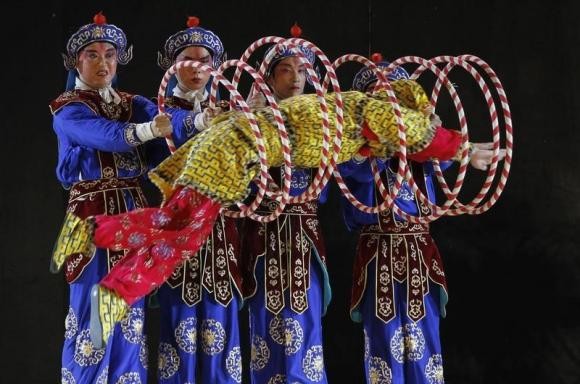The Jingju Theater Company of Beijing, China's largest Peking Opera troupe, in a press briefing Wednesday, announced that it will be staging a total of eight major productions next year, vowing "to adopt stricter performance standards to better develop the traditional Chinese art," the Global Times reported.
Peking Opera, also known as Jingju, is a form of traditional Chinese theater art which combines music, vocal performance, mime, dance and acrobatics that arose in the late 18th century and became fully developed and recognized by the mid-19th century.
Li Enjie, president of the Jingju Theater Company, at the press briefing held in Beijing, told reporters: "All operas staged beginning next year must pass a quality examination for story, vocal performance, dance, stage design, lighting and props by the company's special performance quality monitoring team."
He also said that the company will be stepping up its performance schedule, "from once or twice a week to almost daily in June and August next year."
According to Li, "the more performances we do, the more experience actors can gain, which also leads to more audience feedback for improvement."
The Jingju Theater Company of Beijing was established in 1979 and has staged more than 300 operas in more than 20 countries and regions.
As a theater art form, Peking Opera first became widely popular in the early decades of the 1900s, largely through the efforts of Jingju master Mei Lanfang (1894-1961), the first Chinese artist to give performances in foreign countries, participating in cultural exchanges with Japan, the United States, and other parts of the world.
During his 50-year stage career, he cultivated lasting friendships with his western contemporaries, including with the legendary Charlie Chaplin. In 2000, the story of his life was filmed in a documentary entitled "The Worlds of Mei Lanfang."
Jackie Chan trained at a Peking Opera school before he became a famous movie star.



























